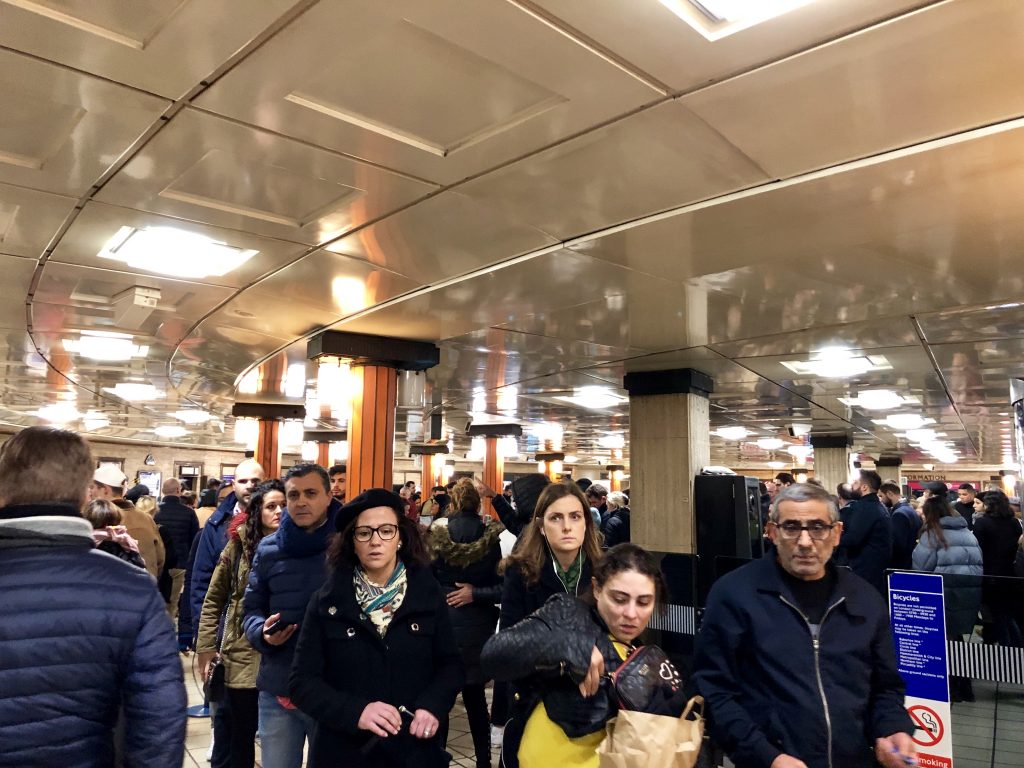TfL’s data reveals close to 3600 commuters have fainted or felt faint on the London tube network in the past two years. The most frequent time people faint is during morning rush hours between 8:00-8:59, especially on Mondays.
The National Union of Rail, Maritime and Transport Workers (RMT) described the number as ‘alarming’. Mick Cash, the general secretary of the union said it was ‘no surprise’ to see more commuters are passing out as ‘overcrowding on Tube is a daily nightmare.’ The RMT also criticised the transportation environment of the London Underground. People suffer due to the heat and the lack of air conditioning on trains.

Crowded tube station | Source: ICL
Northern, Central and Jubilee lines are the top three tube lines where people have passed out or felt faint, followed by Piccadilly line.

Piccadilly Station around 7 PM/ Photo: Ai Chi
King’s Cross St Pancras station topped on the list of numbers of fainting over the past two years, following by Green Park and Liverpool Street station.

Source: TfL
Latest performance figures on TfL shows passengers have taken nearly one billion journeys from last August to this September.
People were more aware of the problems on the network during the heatwave this summer. Temperatures on the trains rose above 35°C, which was beyond the EU limit of 30°C for transporting cattle.
- A passenger’s fainting experience this summer
Massive thanks to the lovely men on the @wlooandcityline just now and the truly wonderful staff at Waterloo tube station for helping me when I fainted! Moral of the story – don't run for tubes in a heatwave 😓
— Ellis Emily Ford (@ellisemilyford_) July 24, 2018
In July, Chris Taggart, the head of operations on the Central Line talked about to improve the unacceptable hot conditions, new trains with air conditioning will be launched in 2030, which is 12 years later.
- People’s reaction on social media
In 2030 my currently hypothetical children will be on school summer holidays and I’ll be using my hover car but OK, thanks. https://t.co/DmUkLPZbJu
— B (@TweetsByBilal) July 24, 2018
Words: Ai Chi | Sub Editor: Fiona Patterson | Video taken by Duha Ali, Edited by Ai Chi

